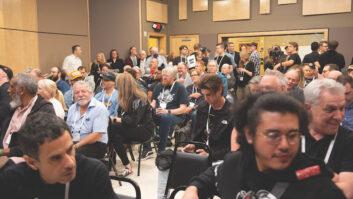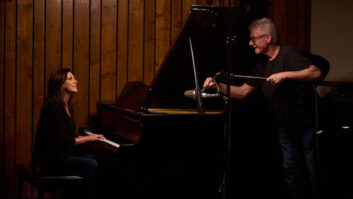Nashville, TN (December 5, 2017)—Elijah “Lij” Shaw, owner and operator of The Toy Box Studio in East Nashville and the man behind Bonnaroo’s Hay Bale Studio, has filed a lawsuit against Nashville Metro Council’s ban on business owners receiving clients in their homes.
Shaw, together with Nashville hair stylist Pat Raynor, has teamed up with the Institute for Justice (IJ) and the Beacon Center of Tennessee to file the suit. Shaw has lived in East Nashville for 17 years, where he converted his garage into a production facility. He has worked with Grammy Award-winning performers such as John Oates, Tori Amos, Wilco and the Zac Brown Band. Raynor, a semi-retired widow, undertook an expensive renovation to her garage to establish a one-chair hair salon with a valid Tennessee cosmetology license.
Nashville homeowners may operate businesses out of their residences, but Metro added a residential zoning ordinance in 1998 that makes it illegal for those businesses to serve clients on the property. “The law, which the Nashville Metro Council passed without public debate or any record of its reasoning, imposes steep fines and potential imprisonment on local musicians, hair stylists, interior designers and other aspiring entrepreneurs if any customers physically come to their homes to do business,” noted a statement from Washington, DC-based IJ.
The IJ says that it has analyzed Nashville’s business records and found at least 1,600 home-based businesses operating within the limits of Nashville’s consolidated city-county jurisdiction, many of them illegally. There are exemptions, IJ notes. “The zoning code allows home-based daycares to serve up to 12 clients a day on the property. People who live in historic homes are also allowed to use their homes up to several times a week for special events, such as wedding receptions and catered dinners.”
Shaw’s business is said to have lost significant revenue after he was ordered to stop publishing his address in advertisements. Raynor, meanwhile, now has the added expense of renting a commercial property.
“I’m a musician. Part of what I love about Nashville is my ability to make a living and support my family doing something I love,” says Shaw. “My home studio allows me to spend quality time with my daughter while keeping a roof over our heads. A man’s home is his castle, and I should have the right to earn a living in mine.”
Nashville’s NewsChannel 5 reports that Shaw says none of his neighbors have ever complained about his operation. Indeed, more than 50 of those neighbors signed a petition of support during a failed appeal of Metro’s decision to shut him down.
Shaw also told NewsChannel 5 that he believes if there are no home studios, then up-and-coming or artists without sufficient funds won’t be able to afford studio time. “The music scene would just slowly die off,” he is quoted as saying.
“This unnecessary and unconstitutional home-based business ban hurts honest and hardworking entrepreneurs in Nashville. Lij and Pat are productive, taxpaying citizens who are being punished for showing initiative and offering services that help other people,” said Beacon Center litigation director Braden Boucek. “Home-based businesses offer people an accessible path to entrepreneurship. It shouldn’t be illegal to make music, or make a living, in Music City.”
According to the IJ statement, Nashville’s own planning commissioners have said this law is against the American way. The top councilwoman for zoning has reportedly called it “dishonest.” Even the law’s defenders, who include former Councilman Carter Todd, have observed that Nashville’s thriving illicit home-business scene doesn’t “bother anybody,” while “ironically working to keep it illegal,” says the IJ.
Institute for Justice
ij.org
Beacon Center of Tennessee
www.beacontn.org







